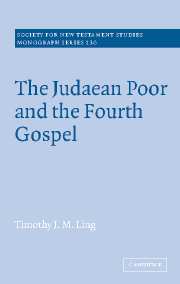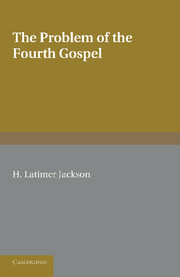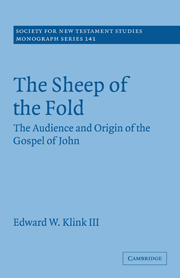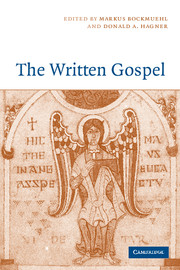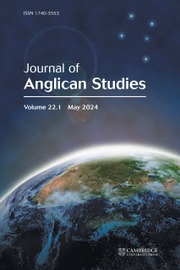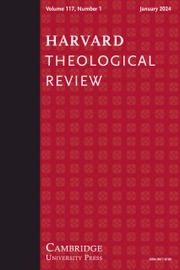The Judaean Poor and the Fourth Gospel
Judaean society in the first century did not conform to the stereotypical 'Mediterranean honour culture', in that it lacked a significant gentile population and was dominated by a powerful religious elite. Timothy Ling argues that this demands a new social-scientific approach to the Gospel and Letters of John that moves away from the accepted 'sectarian' interpretation. He attributes their distinctiveness instead to their roots in Jesus' Judaean ministry, as contrasted with the Galilean ministry that has attracted much recent study. In particular, Ling contends that the numerous references to 'the poor' in the New Testament can be better understood in the context of the 'alternative' ideologies found among pietistic religious groups practising asceticism, renunciation, and other forms of 'virtuoso religion' in first-century Judaea. In doing so, he mounts a convincing challenge to the current dominant reading of the Gospel of John as a product of early Christian sectarianism.
- Re-evaluates the methods of Social Science criticism commonly applied to New Testament texts
- Challenges the dominant view of the Gospel of John as a product of early Christian sectarianism, stressing instead its focus on Jesus' Judaean ministry
- Reinterprets the 'poor' of John's Gospel in the context of the ascetic religious movements that flourished in first-century Judaea
Reviews & endorsements
Review of the hardback: 'Ling has produced a stimulating and highly challenging book …' The Expository Times
'In this excellent monograph … Ling challenges and critiques social-scientific investigations of the New Testament.' Anvil
Product details
August 2006Hardback
9780521857222
264 pages
216 × 140 × 19 mm
0.49kg
Available
Table of Contents
- 1. Introduction
- 2. The New Testament world
- 3. Judaea and 'virtuoso religion'
- 4. The Judaean 'poor'
- 5. John's social world
- 6. Conclusions.

